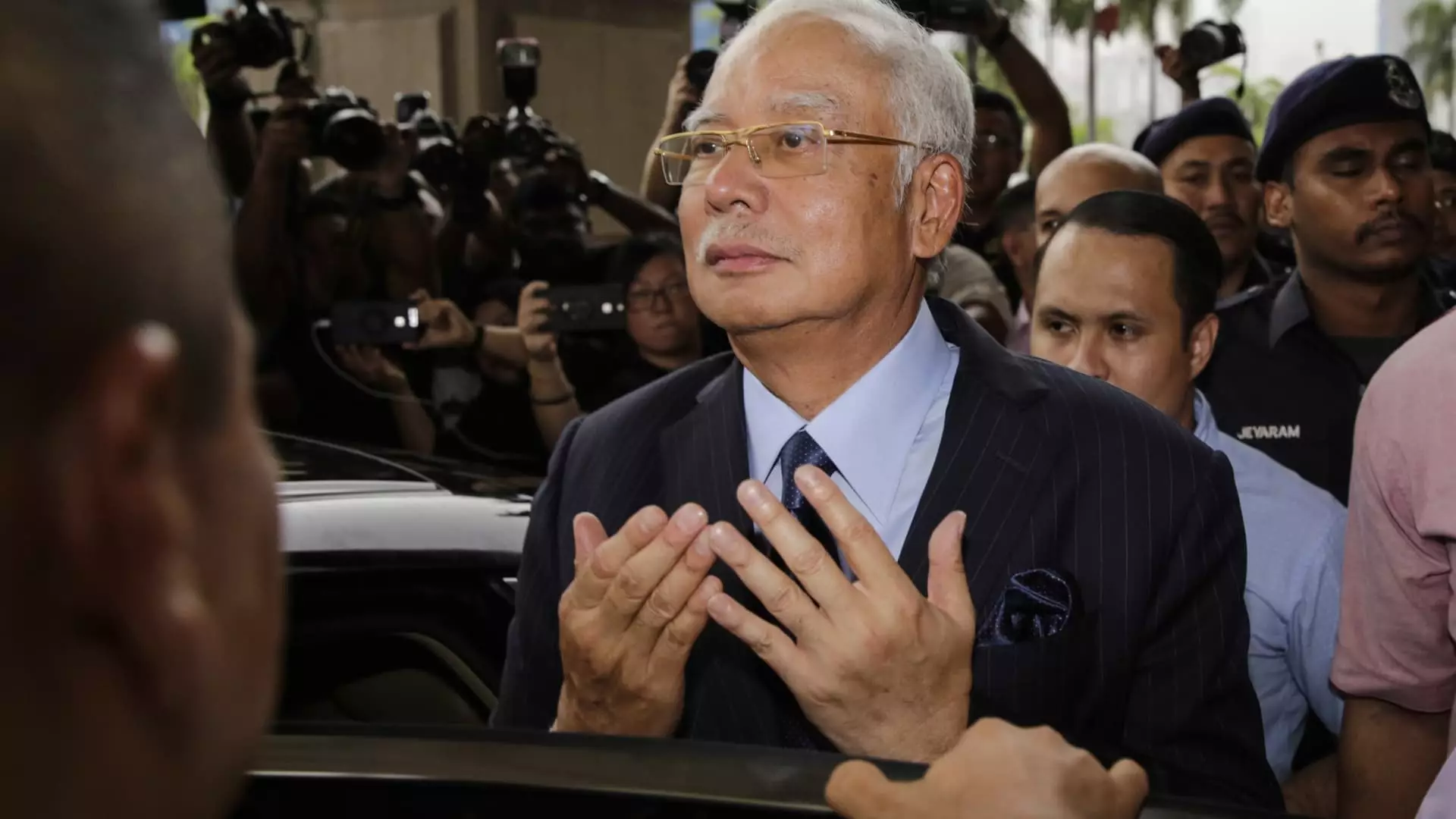Malaysia has made the controversial decision to halve the jail sentence of former premier Najib Razak, who was convicted of graft and money laundering in relation to the multibillion-dollar 1MDB scandal. This move is expected to raise further questions about Prime Minister Anwar Ibrahim’s commitment to fighting corruption, as he campaigned on an anti-corruption platform but formed a government with Najib’s graft-tainted party, the United National Malays Organisation (UMNO), after a hung parliament in November 2022. The reduction in Najib’s sentence is particularly concerning given that a string of graft cases linked to Najib and other UMNO leaders were dropped in the previous year.
The decision to reduce Najib’s sentence raises concerns about Prime Minister Anwar Ibrahim’s commitment to fighting corruption. Anwar came into power on an anti-corruption platform, but his alignment with Najib’s party, which has been plagued by corruption scandals, raises questions about his true intentions. The dropping of graft cases linked to UMNO leaders further suggests a backslide on reforms by the Anwar administration. This move undermines public trust and casts doubts on the effectiveness of the government’s anti-corruption efforts.
Former premier Najib Razak began serving a 12-year jail term in August 2022. However, the recent decision by Malaysia’s Pardons Board, chaired by the country’s king, has halved Najib’s sentence. He will now be released in 2028, and the fines imposed on him have also been significantly reduced. These actions appear to favor Najib and raise concerns about potential leniency towards high-profile individuals convicted of corruption. The lack of transparency surrounding the decision further fuels suspicions of political interference.
Najib Razak was convicted for graft linked to the state fund 1Malaysia Development Berhad (1MDB), which was at the center of a massive corruption scandal. Both U.S. and Malaysian investigators estimate that billions of dollars were stolen from the fund, with a significant amount channeled into accounts linked to Najib. Despite his conviction, Najib has consistently maintained his innocence, claiming that he was misled by fugitive financier Jho Low and other 1MDB officials. He alleges that he believed the funds were donations from the Saudi royal family. However, his repeated denials are met with skepticism from the public and raise doubts about his credibility.
Malaysia’s king holds a largely ceremonial role but has discretionary powers, including the ability to pardon convicted individuals. The Pardons Board, chaired by the king and consisting of government officials and the attorney-general, advises on pardon applications. In Najib’s case, his application was one of six reviewed by the board, which included Malaysia’s former king Al-Sultan Abdullah Ahmad Shah. It is important to note that Al-Sultan Abdullah ended his reign and was succeeded by Sultan Ibrahim Sultan Iskandar shortly before the board’s decision. These changes in leadership raise questions about the impartiality of the board’s decision-making process.
The decision to halve Najib Razak’s jail sentence is a controversial move that has implications for Malaysia’s fight against corruption. Prime Minister Anwar Ibrahim’s alignment with Najib’s party and the dropping of graft cases involving UMNO leaders undermine the government’s commitment to combating corruption. The reduction in Najib’s sentence further erodes public trust and raises concerns about potential political interference. It is crucial for Malaysia’s leadership to address these concerns and demonstrate a genuine commitment to upholding the rule of law and holding corrupt individuals accountable.


Leave a Reply